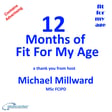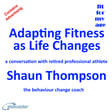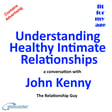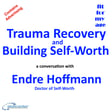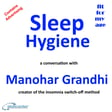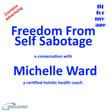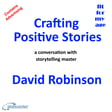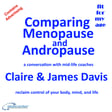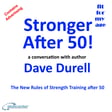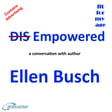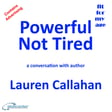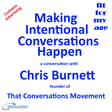
Understanding Sweat - a conversation with author Justin Glaser
Justin Glaser is the author of the bestselling book, Sweat: Uncovering Your Body's Hidden Superpower.
After facing health challenges in his early twenties, that conventional medicine was not resolving Justin Glaser decided to investigate other solutions. Almost by accident he discovered a sauna and found a remedy that worked for him.
His focus shifted from trying to find a solution to trying to understand why a sauna provided the remedy.
In this episode of the Abeceder podcast Fit For My Age Justin explains to host Michael Millward what he discovered about saunas and how regular use can have a positive impact on health.
Their discussion covers the history of sweating, and how different cultures have used sweat for to mange health, as a bonding or initiation experience.
Justin explains how the natural process of sweating acts to both manage temperature and remove toxins from the body.
He explores the attitude of the medical profession to sweat based therapies.
Michael and Justin discuss the different types of saunas, and Michael describes the wide range of sweat experiences available at the Harrogate Turkish Baths.
Justin explains how to use a sauna and how it is possible to identify regular sauna users.
Find out more about Michael Millward and Justin Glaser at Abeceder.co.uk.
Audience Offers
Proactive Positive Ageing.
We recommend The Annual Health Test from York Test, because knowing the risks early means you can take appropriate actions to maintain good health.
An experienced phlebotomist completes a full blood draw at your home or workplace, so that 39 different health markers can be assessed in a UKAS-accredited and CQC-compliant laboratory.
A Personal Wellness Hub gives access to easy-to-understand results and guidance to help you make effective lifestyle changes.
Visit York Test and use this discount code AGE25.
Fit For My Age is made on Zencastr, because Zencastr is the all-in-one podcasting platform, that really does make creating content so easy.
If you would like to try podcasting using Zencastr visit zencastr.com/pricing and use our offer code ABECEDER.
Travel Members of the Ultimate Travel Club enjoy travelling at trade prices on flights, trains, hotels, holidays and so many other travel related purchases. Use the link to access discounted membership.
Matchmaker.fm If you are a podcaster looking for interesting guests or if, you have something interesting to say Matchmaker.fm is where great hosts and great guests are matched and great podcasts are hatched. Use our offer code MILW10 for a discount on membership.
Being a Guest
If you would like to be a guest on Fit For My Age, please contact using the link at Abeceder.co.uk.
We recommend the podcasting guest training programmes available from Work Place Learning Centre.
We appreciate every like, download, and subscriber.
Thank you for listening.


